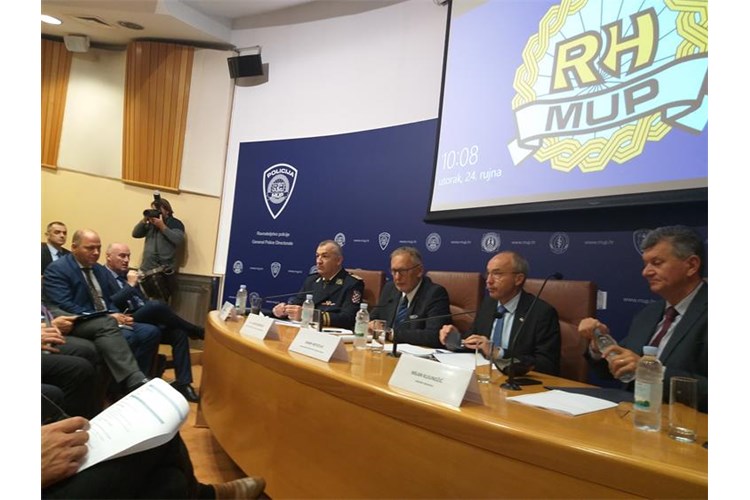


"We have achieved huge progress, but the system must develop in conceptual, legal, organisational, operational, educational and technological terms," said the Committee chair, Defence Minister Damir Krsticevic.
"It is only through the homeland security system that we can cope with all threats and risks to contemporary society," Krsticevic said, calling on all stakeholders to continue addressing the system's shortcomings and weaknesses to improve its coordination and functioning.
Interior Minister Davor Bozinovic spoke of illegal migration, saying that the state border was secure despite challenges. Croatia has a key role in preventing secondary movements of seekers of international protection, which have brought into question the European asylum system and resulted in introducing controls on the internal borders of the Schengen area, he added.
The assistant chief of the Border Directorate, Gilio Toic Sintic, said that the greatest migratory pressure was coming from Serbia and Bosnia and Herzegovina, and that there was also increasing pressure on the border between Greece and North Macedonia. "The police departments in Karlovac, Sisak-Moslavina and Lika-Senj counties are under the biggest pressure," he said, adding that there had been as many as 211 percent more attempts to illegally cross the Croatian border in the first eight months of this year than in the same period of 2018.
The national chief of police, Nikola Milina, said: "There are a lot of challenges ahead of us so it is necessary increase the capacity, interoperability and exchange of information between all components of homeland security because the pressure on the state borders will continue to increase."
The Committee also discussed this year's fire season, concluding that all tasks had been successfully carried out because all firefighting units were well prepared, organised and coordinated.
Text: Hina